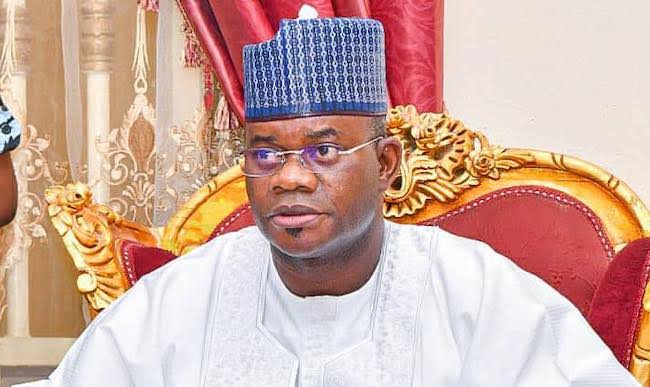The Federal High Court in Abuja adjourned the arraignment of former Kogi State Governor Yahaya Bello on an alleged money laundering charge brought by the Economic and Financial Crimes Commission, EFCC,.
The arraignment, initially scheduled for June 13, has been rescheduled to June 27 following an agreement between the counsels of both parties.
The new date was reportedly set at the EFCC’s request. However, during the court session, there was a minor commotion when Rotimi Oyedepo, SAN, representing the EFCC, claimed he was unaware of this agreement.
At Thursday’s hearing, Governor Bello’s counsel, Adeola Adedipe, SAN, informed the court that the EFCC’s lawyers had approached AbdulWahab Mohammed, SAN, who is also representing Bello, to request a new date as June 13 was inconvenient for them. Mohammed had agreed to the new date out of convenience.
Adedipe, who was present in court for another matter, expressed surprise upon learning that Rotimi Oyedepo, SAN, was there for the Yahaya Bello/EFCC case.
“They (EFCC) agreed that junior counsels would be sent to court today to formally pick a date. And the registry can confirm this,” Adedipe said.
“Kemi Pinhero SAN has been calling us to say today is not convenient,” he added. Kemi Pinhero is the lead counsel.
But for the decision of the EFCC to seek an adjournment to a future date for his arraignment, Governor Yahaya Bello, was said to be ready to appear in court today.
“Under 266 ACJA there are instances when defendants don’t need to come and this is one of them. We came here to pick a date. Of what use will the defendant coming here be? It is the prosecuting counsel that approached us, we did not approach them. We have nothing to hide,” Adedipe noted.
In a strange twist, however, Rotimi Oyedepo, SAN, said he was not aware of any meeting that happened outside the court, that he did not know about the understanding to adjourn till 27th.
Justice Nwite thereafter adjourned the case to June 27 after an undertaking by Adedipe SAN that the defendant would appear on that day.
Nwite said, ordinarily, an agreement outside the court that a new date should be picked should not be enough to ignore the previous undertaking.


